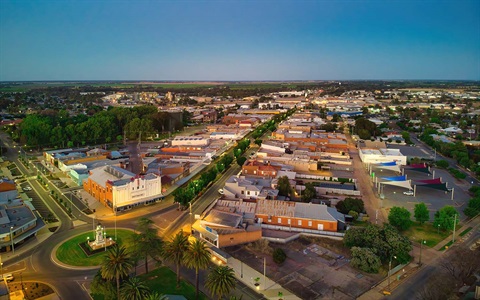
...to Rebalance the Rating Structure to Improve Fairness and Equity
Currently, compared to similar sized councils across NSW, Leeton Shire farmland average rates are higher than the NSW average and business average rates are significantly lower than the NSW average. While Leeton's residential average rates are slightly higher than the NSW average, Council does not intend to adjust these as residential ratepayers benefit the most overall (being 75% of the ratepayers who pay 52% of the rates).
To rebalance the proportion of rates paid by farmland and business ratepayers, Council is proposing a three-year program from the 2024/25 financial year to redistribute the rate peg* from farmland onto business and to introduce two new rating sub-categories called "Business Industrial – Leeton" and "Business Industrial – Whitton".
The rebalanced rating structure is proposed to create a fairer and more equitable distribution between the rating categories – it does NOT increase the amount of rates Council may collect in total (beyond the annual rate peg).
Today, the average Leeton business rate is $1,401 as opposed to $2,438 which is the average for comparable NSW councils. The average Leeton farmland rate is $3,855 as opposed to $3,743 which is the average for comparable NSW councils.
At the end of the proposed three-year program, the average business rate will be $2,196 which is closer to $2,651, the estimated average for similar sized NSW councils.
The average Leeton farmland rate will remain $3,855 compared to $4,070, the estimated average for similar sized NSW councils.
As the proposed changes won't impact residential ratepayers and aim to benefit farmland, Council is particularly seeking feedback from Leeton Shire businesses.
"We understand this is a lot to wrap your head around. This is why we want to give business owners opportunities to ask questions and have their voices heard. There will be three consultation dates in November and also a flyer made available to explain these proposed changes in more detail," said Mayor Cr Tony Reneker.
"It's also important to note that the new rating structure will not generate any additional revenue to Council (beyond the annual rate peg). It's solely designed to rebalance rates more fairly between the three rating categories," he added.
By giving farmers a rate peg 'holiday' for three years and shifting their equivalent share of increases across to businesses for that period (only), these two rating categories will be brought closer to the average for similar sized Councils across NSW. Depending on the value of each property, the rates payable may be higher or lower than the average.






